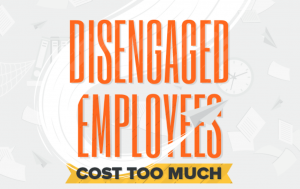The idea of employees taking care of personal business or simply slacking off on company time isn’t new, but it’s still an issue many companies face.
In this article, we’ll talk about what time theft is, common ways employees steal company time, and how to prevent it from occurring in your own organization or team.
Key Takeaways
-
Time theft can look like committing time sheet fraud, abusing breaks, and conducting personal business during company time.
-
Implementing time tracking can help increase productivity and lower costs, but it can also damage trust and may not solve the root problem.
-
Setting clear productivity expectations and showing employees you care about them can go a long way in reducing time theft.
What Is Time Theft?
Time theft is when employees accept payment for the time they have not spent on company business.
It is estimated that the average employee “steals” between four and five hours a week from their employer, which adds up to one full working week every year and costs businesses hundreds of billions of dollars a year worldwide.
Ways Employees Steal Time
Time theft comes in a variety of different guises and is often difficult to detect.
-
Time sheet fraud. When employees are responsible for logging their own hours, the practice of rounding up to the nearest hour or lying about hours worked is considered timesheet fraud.
-
Break abuse. This is the most common form of time theft and involves taking longer or more frequent breaks than authorized; a charge often leveled at smokers (frequently by their non-smoking colleagues).
-
Personal business. Making and receiving personal phone calls, texting, shopping online, and spending work time on social networking sites are all forms of time theft. Extreme cases even include using company time to run a separate business.
-
Buddy punching. Some employees ask their coworkers to clock them in or out when they aren’t actually there (often they’re running late or leaving early).
-
Starting late. Many employees get in the habit of starting work late and leaving on time or early. While this may seem harmless, it is still time theft and quickly adds up and becomes costly to the company.
-
Disappearing on the job. Whether they’re working in an office or at home, some employees will disappear without warning to take an unauthorized break or run a personal errand on company time.
Is Tracking Employee Time The Answer?
Since the invention of the very first time clock, employers have been monitoring the hours their staff work.
And there are distinct advantages to doing so. Time tracking allows you to identify those areas where your employees’ time could be better spent, thus improving overall productivity.
And with more workforces going mobile, time tracking is becoming essential for keeping tabs on employees who may be spread out across other states and even other countries.
Despite the losses incurred through time theft and the productivity gains to be had from time tracking, there is a school of thought that sees time tracking as a counter-productive practice.
-
Physical tracking of employees does not mean accurate monitoring of productivity. For instance, while a GPS tracking device on a company car or mobile can pinpoint an employee’s exact whereabouts, it cannot tell what that person is doing or whether they are carrying out company business.
Similarly, a time clock can tell when an employee punches in but has no way of recording what activities they engage in before they punch out again.
-
Tracking can quickly damage trust. But the main objection of those opposed to time tracking is that it creates a culture of mistrust within an organization.
If employees are required to constantly report their whereabouts or are placed under frequent personal or electronic surveillance, they are likely to feel that they are not trusted by their employer.
If they don’t feel trusted, then they don’t feel valued either and this can lead to resentment, reduced productivity, high staff turnover, and all the other issues associated with negative company culture.
Rather than checking up on their employees, opponents of time tracking argue that employers should trust their employees and let them know that they are trusted.
Other Ways To Prevent Time Theft
Some would argue that there is a multi-million dollar industry to prove that time tracking is a necessity.
Others may argue that good staff morale is more important and more profitable in the long run than any short-term productivity gains made through time tracking.
Perhaps, as in most arguments, moderation is the key. You may just be able to have the best of both worlds if you:
-
Set clear expectations without being too rigid. Clearly spell out what is considered acceptable use of company time, while still being flexible enough to allow for the odd long lunch, personal phone call, text, or check-in on social media (of course a formal social media policy is highly recommended).
-
Use only reasonable recording measures to streamline your payroll procedures. If you need to implement some kind of time-tracking system to keep payroll running smoothly, keep it simple and reasonable — don’t try to keep tabs on every second of every employee’s day.
-
Emphasize performance over time worked. Set clear goals and KPIs and judge an employee’s performance by whether they achieve them, rather than focusing on how they achieve them and how much time it takes.
-
Show employees you care about them. Studies have shown that if employees feel valued, they are more likely to work harder, take more responsibility, and require less supervision than those who are treated like errant schoolchildren who must be watched at all times.





